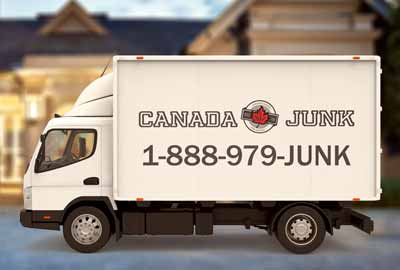Why can't you take hazardous materials?
While we do want to do our best to take care of all of your junk disposal needs, hazardous materials are not something we can take care of for you. If you are unsure of what we mean by hazardous materials we have explained each category below.
There are three types of hazardous materials. The first is nonspecific source waste. These include waste from an industrial process or common manufacturing. They include solvents used for cleaning purposes and decreasing operations. For homeowners these include household chemicals and solvents, paints, oils and other hazardous waste.
The second type of hazardous materials are specific wastes. These include wastes that are specific to certain industries. They include petroleum refining and pesticide manufacturing. Waste waters and sludge from a production process also fall under the source specific waste category.
The third category is commercial chemical products. These are chemical products that are in an unused form. When discarded, pharmaceutical products and some pesticides become hazardous waste as well.
Because any of these categories of waste can be very harmful to the environment and even harmful to our team we are unable to discard them for you. However, there are hazardous waste transportation services and/or drop-off depots. These are either offered by the city or by a private contractor who will help move the waste from one site to another. Depending on the toxicity of the waste it may be removed by highway, water, railway or air. The waste will be taken to a facility that can recycle, treat and dispose of it.
Luckily, many industrial hazardous wastes are able to be recycled. This can be done effectively and safely so that the waste is able to be reused or reclaimed. Recycling hazardous waste helps reduce the consumption of raw materials. This results in less water, air and soil pollution that comes from extracting and refining raw materials. This also helps reduce emissions of greenhouse gas into the environment. When these types of materials are recycled it actually takes less energy than if hazardous materials were to be prepared for being dumped.
For big corporations hazardous waste recycling is not only good for the environment it’s also very cost-effective. Recycling helps increase production efficiency and reduces the cost of new raw materials that would have to be purchased.
How do you know if your waste is hazardous? It will fall into one of the three categories mentioned above and will have a characteristic of toxicity, corrosively or reactivity.
Instead of wondering and worrying about whether or not you have hazardous wastes to dispose of it is best to call your city and ask them to direct you to someone who can help you. Solid wastes are not necessarily hazardous wastes and the process of determining whether or not your waste is in fact hazardous can be a little confusing. Put your mind at ease and give your city a call. They will be able to either schedule a pickup or direct you to a location where you can drop off your waste.
